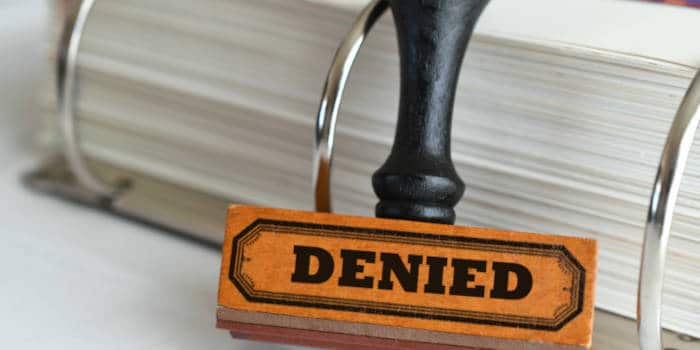- Casino
- By State
- Alabama
- Alaska
- Arizona
- Arkansas
- California
- Colorado
- Connecticut
- Delaware
- Georgia
- Florida
- Hawaii
- Idaho
- Illinois
- Indiana
- Iowa
- Kansas
- Kentucky
- Louisiana
- Maine
- Massachusetts
- Maryland
- Michigan
- Minnesota
- Mississippi
- Missouri
- Montana
- Nebraska
- Nevada
- New Hampshire
- New Jersey
- New Mexico
- New York
- North Carolina
- North Dakota
- Ohio
- Oklahoma
- Oregon
- Pennsylvania
- Rhode Island
- South Carolina
- South Dakota
- Tennessee
- Texas
- Utah
- Vermont
- Virginia
- Washington
- West Virginia
- Wisconsin
- Wyoming
- By State
- Slots
- Poker
- Sports
- Esports
Fact-checked by Velimir Velichkov
Kansas Bettors, Oblivious of Gambling Tax Regulations
Bettors in Kansas are not aware of the gambling tax rules regarding their winnings

The Internal Revenue Service (IRS) is having a hard time keeping tabs on gambling winnings, according to a recent study we reported on last month.
The results of the study showed a large number of gamblers in the US failed to report their winnings, which caused the IRS to miss out on roughly $1.4 billion in taxes from 2018 to 2020.
As a state that celebrated the second anniversary of its legalized sports betting market this September, Kansas offers bettors plenty of opportunities to enjoy their newly-found hobby – automatically generating losers and winners who further add to the IRS’ faulty reporting problem.
“Just to Have a Little Fun With It.”
Whether it’s betting on basketball, considered the most popular team sport in the Sunflower State, or other equally popular alternatives like football, baseball, or Russian table tennis, the people of Kansas love a good punt just like the next bettor.
One of the most recent ways of enjoying any game in the state is by betting on what will happen next or who is going to come out with flying colors out of a competition or event.
“Just to have a little fun with it,” explained local gambler Michael Pointer for Kake.com. Pointer, who considers himself an occasional bettor, added that he enjoys seeing what he can do and whether he can “beat the parlay.”
He also explained that he does not gamble frequently as he feels “uncomfortable” when he loses money, as his losses are usually higher than his wins.
Pointer estimated his greatest payouts are roughly $150, which is why he never files any taxes on them.
However, the IRS is eager to know how all bets turn out for gamblers like Pointer.
Players Must Report Even Small Winnings
As explained by Liberty Tax’s general manager in Kansas, Oklahoma, and Arkansas, Shane Albrecht, gamblers are “required by IRS rules” to report even small winnings “as income, as gambling winnings,” which is crucial as it can add to their your taxable income.
However, while the agency is eager to hear about every single win, sportsbooks have the habit of only sending a tax form for hefty wins, giving bettors the freedom to self-report their smaller winnings otherwise.
According to data from the Treasury Inspector General for Tax Administration’s study, as of March 2023, close to nearly 150,000 Americans had failed to file their taxes on big gambling winnings.
This has led to an estimated tax loss of around $13.2 billion. The IRS is determined to change things.
Year-Long Logs Needed
Albrecht addressed the forms sent by sportsbook operators to the IRS, explaining they are “event-driven” forms that should be filled in every time a bettor wins over a specific amount of money.
Albrecht added that players who do not reach the threshold needed to receive the W-2G form are still required to keep track of all their wins and losses as they occur.
The GM spoke about the IRS’ expectations to know when someone bets, the amount they wager, and what games or events they bet on.
Everything should be compiled in the form of a log. “They don’t want anything that you just wrote down at the end of the year,” further commenced Albrecht, but rather something kept “throughout the year.”
This, unfortunately, is not something that a lot of gamblers of Kansans are aware of, including casual gambler Pointer.
When he was asked if he ever filed his gambling losses with his taxes, he said that he “had no idea” he was required to do so.
Tax officials also pointed out that many bettors overlook another important detail: when placing a bet in another state, such as Colorado, they may also be required to file taxes in the respective state.
Related Topics:
After finishing her master's in publishing and writing, Melanie began her career as an online editor for a large gaming blog and has now transitioned over towards the iGaming industry. She helps to ensure that our news pieces are written to the highest standard possible under the guidance of senior management.
Previous Article

Industry
November 5, 2024
Downtown Las Vegas Casino Player Places $0.80 Bet for a $14K Win

Must Read
More Articles





Sports
July 15, 2025
Undercover Spotters Catch Wimbledon Betting Spies

Poker
July 15, 2025
Leo Margets, Ready for Historic WSOP Final Table

Casino
July 15, 2025
Uno Is Coming for Casinos in the United States

Casino
July 14, 2025
Number of Canadian Travelers to the US Slumps Again












